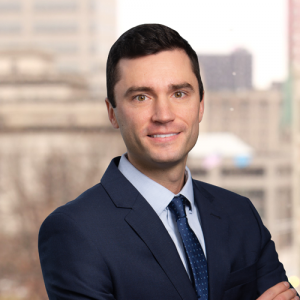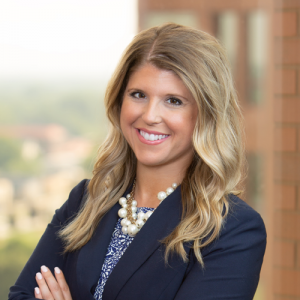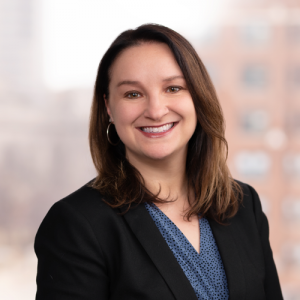On November 1, 2016, the Centers for Medicare & Medicaid Services (“CMS”) issued its long-awaited final rule for the CY 2017 Hospital Outpatient Prospective Payment System (“Final Rule”). Among many other changes, CMS finalized its implementation of Section 603 of the Bipartisan Budget Act of 2015 (“Section 603”), which excludes many off-campus services from being paid as hospital services under the hospital outpatient prospective payment system (“OPPS”) as of January 1, 2017. CMS also issued an interim final rule with comment period (“IFC”) with the Final Rule to establish new payment rates under the Medicare Physician Fee Schedule (“MPFS”) for the items and services provided by non-excepted (non-grandfathered) off-campus provider-based departments (“PBDs”) for CY 2017.
The Final Rule addresses several issues left open by the proposed rule, but many open issues remain, leaving uncertainty for off-campus provider-based hospital departments. There is some silver lining here, though, in that non-excepted services/sites on or after January 1, 2017 can still be billed on the UB-04, included on the cost report and treated as hospital departments. This simplifies or avoids billing and enrollment changes, avoids potentially complex operational issues and likely preserves 340B and other secondary implications of being a PBD.
Background
As discussed previously, Section 603 effectively reduces Medicare reimbursement for certain off-campus hospital departments, as defined in 42 C.F.R. § 413.65(a)(2) (the Medicare “provider-based rule”), by eliminating eligibility for payment under OPPS effective January 1, 2017 but grandfathers (“excepts”) any off-campus departments of a hospital that billed Medicare under the OPPS prior to November 2, 2015. Beginning January 1, 2017, services at non-excepted locations will be paid under MPFS as the “applicable payment system.”
CMS Proposals & Finalized Policies
To implement Section 603, CMS addressed the following proposals.
- “Excepted” Items and Services. CMS finalized its proposal with respect to excepted items and services such that all excepted off-campus PBDs will be permitted to continue to bill for the furnishing of excepted items and services under OPPS. Those excepted items and services include:
- All items and services furnished in a dedicated emergency department (as defined in 42 C.F.R § 489.24), including non-emergency services;
- Items and services that were furnished by an off-campus PBD prior to November 2, 2015; and
- Items and services furnished in a hospital department within 250 yards of a remote location of the hospital. Note that, in its proposed rule, CMS urged hospitals to use surveyor reports or other appropriate documentation to ensure their off-campus provider-based departments are within 250 yards (straight line) from any point of a remote location for this purpose.
- Service Expansions in Excepted Off-Campus PBDs. CMS proposed that off-campus PBDs may continue to be paid at OPPS rates for items and services in the “clinical families of services” that were furnished and billed as of November 2, 2015. CMS proposed creating 19 clinical families of services, which are defined by APC and HCPCS code. However, services beyond those clinical families of services would not have been excepted services (i.e., not payable under the OPPS). CMS did not propose to limit the volume of excepted services at a location.
In the Final Rule, CMS did not finalize its proposed policy with respect to service line expansion, and an excepted off-campus PBD will receive payments under OPPS for all billed items and series, regardless of whether it furnished such items and services prior to November 2, 2015 as long as the off-campus PBD remains excepted. CMS stated that it will continue to monitor the volume of services at excepted locations to determine if future rulemaking is necessary for service expansions.
- 340B Child Sites. CMS acknowledged that the proposed rule did not specifically address whether non-excepted off-campus PBDs would be eligible as “child sites” under the 340B Drug Pricing Program and noted that under the finalized policy, services provided at non-excepted off-campus PBDs will continue to be considered part of the hospital and reported as a reimbursable cost center on the hospital’s cost report. CMS referred interested parties to HRSA for specific questions on when drugs qualify for discounts under the 340B program. Though HRSA has yet to comment on the implications of this proposed or final guidance, this resolution should enable continued 340B Program child site eligibility.
- Relocation of Excepted Off-Campus PBDs. CMS finalized its relocation policy maintaining that excepted off-campus PBDs will lose their excepted status if it changes location (i.e., moves or relocates from the physical address that was listed on the provider’s hospital enrollment form as of November 1, 2015). In the case of addresses with multiple units (multi-office building), the unit number is considered a part of the address. Therefore, an excepted hospital PBD may not purchase and expand into other units in the building and retain its excepted status.
Additionally, CMS responded to commenters’ concerns and created an exception for limited circumstances beyond the hospital’s control in which an off-campus PBD may relocate. These circumstances include natural disasters, significant seismic building code requirements or significant public health and public safety issues that necessitate moving to a new building (either temporarily or permanently) without losing its excepted status. The appropriate CMS Regional Office is to review exceptions to the relocation policy on a case-by-case basis.
- Facilities Under Development. CMS acknowledged that its proposed rule did not include a proposal for off-campus PBDs that were mid-build or under development at the time Section 603 was enacted on November 2, 2015; however, it noted that Section 603 does not provide an exception for mid-build or under development PBDs among the types of excepted off-campus PBDs. Notably, CMS agreed with commenters’ interpretation of the statute to allow for an exception for off-campus PBDs that furnished a covered outpatient department service prior to November 2, 2015 but had not submitted a bill to Medicare for such service prior to November 2, 2015. Accordingly, off-campus PBDs would be eligible to receive OPPS payment for excepted services that were furnished prior to November 2, 2015 and billed under OPPS in accordance with timely filing limits.
- Changes of Ownership of Excepted PBDs. CMS finalized its proposed policy that allows an off-campus PBD to maintain its excepted status only if the new owners accept the existing Medicare provider agreement from the prior owner. However, individual excepted off-campus PBDs cannot be transferred from one hospital to another and maintain excepted status, and excepted status does not transfer when one hospital merges into another.
- Applicable Payment System. In the Final Rule and IFC, CMS stated that it continues to believe that the MPFS should be the “applicable payment system” for the majority of non-excepted items and services furnished in a non-excepted off-campus PBD. However, CMS did not adopt its proposal to only pay the physician or group for non-excepted services, which would have precluded the hospital from directly billing and getting paid by Medicare. Importantly for hospitals, this avoids the need to enter into arrangements with physicians that also implicate various Medicare billing and fraud and abuse issues.
Instead, CMS will allow hospitals to bill for non-excepted items and services on the CMS-1450/UB-04 institutional claim form with the newly created “PN” modifier and will pay for those services under new MPFS rates. Non-excepted services identified with the PN modifier will be reflected on Provider Statistical and Reimbursement reports, and costs for services at non-excepted off-campus PBDs will be reported on the hospital’s cost report.
As indicated above, the Final Rule and IFC establish new payment rates under the MPFS for the items and services provided by non-excepted off-campus PBDs for CY 2017. Initially, these payment rates will be based on 50 percent of the OPPS payment rate, which CMS arrived at by comparing data from off-campus PBDs that billed using the “PO” modifier to rates that would have been paid under the MPFS. CMS stated that it considers this payment reduction to be a transitional policy until it has more precise data to value services provided by non-excepted off-campus PBDs. CMS is seeking public comments on the new payment mechanism for non-excepted services as well as potentially transitioning to a new payment methodology in the future.
It is important to note that CMS will apply the same hospital wage index for non-excepted services that would otherwise apply to the hospital’s payments under the OPPS. CMS will also continue to apply OPPS packaging policies for non-excepted services paid under the MPFS. That means, for example, that CMS will use the claims processing logic that is used for payments under the OPPS for comprehensive APCs and packaging of clinical diagnostic laboratory tests, which will be incorporated into the newly established MPFS rates.
- Data Collection. CMS sought public comments on whether hospitals should be required to separately identify all individual excepted off-campus PBD locations, the date that each excepted off-campus PBD began billing and the clinical families that were provided by the excepted off-campus PBD prior to the November 2, 2015 date of enactment. CMS proposed to develop a new form to collect this information, which would be available on the CMS website. In its Final Rule, CMS declined to adopt a new data collection mechanism and will continue to rely on mandatory reporting of modifier PO for all off-campus PDBs as well as new modifier PN that will be required for all non-excepted items and services.
In conclusion, CMS noted that it and its contractors will continue to conduct audits of hospital billing to ensure off-campus PBDs are billing under the proper billing system. Accordingly, CMS expects hospitals to maintain proper documentation showing which individual off-campus PBDs were billing Medicare prior to November 2, 2015 and make this documentation available to CMS and its contractors upon request.
Open Issues
There are several issues that CMS did not address the Final Rule. These include the following.
- Medical Education Payments. The Medicare medical education payment regulations allow hospitals to count resident time in a provider-based setting or, if certain conditions are met, time in a freestanding setting. While CMS did not address medical education payments in either the proposed rule or Final Rule, CMS did confirm that if a non-excepted facility continues to meet the provider-based requirements, it will be considered part of the hospital. Presumably, this means time spent in a non-excepted provider-based facility would be counted the same as time in an excepted provider-based department. If a hospital chooses to enroll a non-excepted facility as a freestanding clinic location, it would need to demonstrate that it meets the requirements of 42 C.F.R. § 413.78, including that the hospital incurred all of the salary and benefit costs for the residents in those settings.
- Critical Access Hospitals. The Final Rule and Section 603 do not impact payments to critical access hospitals (“CAHs”). Since CAHs are paid for outpatient services under SSA Section 1834(g) and Section 603 affects payment under SSA Section 1833(t), the exclusion does not apply to CAH off-campus sites. If applicable requirements are met, CAHs can continue to establish off-campus departments on or after November 2, 2015 and continue to be paid based on reasonable cost after January 1, 2017. However, a CAH that is considering opening a new off-campus department should ensure that the facility is the appropriate distance from other hospitals and CAHs so as to not jeopardize its CAH status as required by 42 C.F.R. § 485.610(e).
- Rural Health Clinics. The Final Rule did not address the fact that many hospitals operate provider-based rural health clinics (“RHCs”) in addition to PBDs. RHCs are separately enrolled and certified providers under the Medicare program, and the exclusion should not apply to the RHC services. More specifically, the exclusion in SSA Section 1833(t) applies only to off-campus “departments of a provider,” and provider-based RHCs are “provider-based entities” (each as defined in 42 C.F.R. § 413.65(a)). Additionally, RHC services are not paid under the OPPS. Therefore, Section 603 and the Final Rule should not affect the payment for RHC services.
Practical Takeaways
- Hospitals should start planning for billing process compliance for non-excepted services after January 1, 2017. This may involve providing education to physicians and staff on the appropriate billing for non-excepted services, including the use of the new PN modifier on the institutional claim form. Although there is no need to monitor the mix of services (clinical families of services in the proposed rule) at an excepted site, such sites are still limited in size to what existed on November 1, 2015. So, changes need to be monitored and the impact on excepted status assessed.
- Hospitals should determine which facilities are considered on-campus and, therefore, will not be impacted by Section 603. This may include working with surveyors to determine whether a PBD is within 250 yards of the main campus or remote location buildings.
- Hospitals should review and maintain documentation for excepted facilities and services. This should include documentation that services were being furnished as OPPS covered services at the site as of November 1, 2015, locations are listed on the CMS 855A as hospital locations, etc.
- Provider-based status at non-excepted sites is not dead. Although the billing is slightly changed and the payment significantly reduced, they will still be treated as hospital departments. The direct payment reduction will trigger assessment of how that balances out against the benefits of operational consistency across sites and the secondary impact of being a hospital department.
If you have questions or would like additional information about this topic, please contact:
- David Snow at (303) 801-3536 or dsnow@wp.hallrender.com;
- Lori Wink at (414) 721-0456 or lwink@wp.hallrender.com;
- Regan Tankersley at (317) 977-1445 or rtankersley@wp.hallrender.com;
- Joseph Krause at (414) 721-0906 or jkrause@wp.hallrender.com;
- Lisa Lucido at (248) 457-7812 or llucido@wp.hallrender.com; or
- Your regular Hall Render attorney.
| Stay tuned for more information regarding our free Hall Render webinar, “Off-Campus Provider-Based Final Rule – Phoenix or Apocalypse?“! Click here to sign up to receive Hall Render webinar invitations and alerts on topics related to health care law. |





